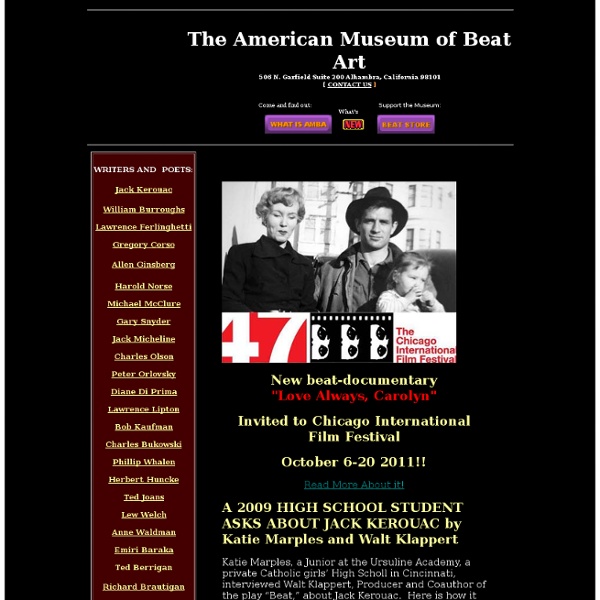



Word Freak: Heartbreak, Triumph, Genius, and Obsession in the World of Competitive ScrabblePlayers There is a great moment in WORD FREAK when the author, Stefan Fatsis, considers his obsession with Scrabble and wonders if it's healthy. In normal literature, such a moment might be devoted to doomed romance or drug addiction. There's something wonderfully nerdy about the fact that in WORD FREAK it involves a board game. Fatsis originally planned to write WORD FREAK as a journalistic account of an odd but harmless subculture. Scrabble was then just another board game in his living room; if writing the book would make him a better player, it was a byproduct hardly worth mentioning. In retrospect, Fatsis' decision was not only incredible, but also inevitable. If this sounds like a typical underdog story, it shouldn't. Fatsis' knowledge of the Scrabble world is hard earned. Fatsis works hard to be seen as a typical Scrabble player, but he never quite blends in with his peers.
The Idler Project Bow's FAQ: Why is it called a lexigram when it looks like a word? At this point in his development, Bow no longer needs lexigrams. He is literate and he spells out his own words. Bow developed literacy at the age of five and half years. Now, you might be thinking: "Hey, that's not a lexigram. So the question is: what is a lexigram and how do we recognize one? A lexigram is a symbol that stands for a word. Is the photo for the English word "banana" that I've posted above a "spelled-out" word or a holistic lexigram? Like beauty, whether or not something is a lexigram is in the eye of the beholder. Some Examples of Bow's Lexigrams in Both Hebrew and English Why use lexigrams? Chimpanzees cannot produce speech that humans can comprehend. When choosing sign language, one can select a particular sign language used by the deaf community, such as ASL, or finger spelling, as was used in the case of Helen Keller, or one can decide to make up one's own sign language especially for the child or chimpanzee in question. A Brief History of Lexigrams Proto-Semitic Aleph
Free Words Free Words in Free Press Exciting news: Free Words Forever will be the inagural volume of the new Free Press library. This summer and fall you are invited to contribute to the creation of an open-access publishing house, a "Free Press," to be launched at Röda Sten contemporary art center in Göteborg, Sweden. A project of artist Sal Randolph, Free Press will accept all kinds of writing from the public; contributions in any language can be as short as a single word or as long as an encyclopedia and can include manifestos, statements, documentations, studies, stories, recipes, poems and whatever you can imagine. "Even in the age of the internet, book publishing is a walled garden where editors and commercial interests filter out most of what is written," says Randolph. "To publish is to 'make public,' and the published materials of the world create their own kind of public space, a city of books where readers and writers are citizens. This is an article about adipex-p for sale review.
www.bulwer-lytton.com The Elephant's Memory Visual Sentences Home T E X T F I L E S The Current File Statistics for textfiles.comCheck the bottom of the main page for related sites, include ANSI, audio, PDF, and others. Do everyone a favor and read the Disclaimer. AAAAH! MY EYES! Click here if you prefer a black and white color scheme. Many people want to download an entire directory and sift through it on their own time. Do you have textfiles you want to donate that are not here? Chuck Lorre Productions - Vanity Cards
Free Online Graphic Novels Updated: August 29, 2015 Novels by Genre Recent Additions Novels to Enjoy for the... More Free Online Reading Only Connect (The daily link) Graphic 38 Weeks by Mack Polhemus [Personal History] Art Bum by Joy Rip [5 more free graphic novels] Boys Don't Cry by Jacqueline Saville, Mark Pexton and Andrew Woods {pdf} Catalogue of drunk birdsong by Jasper Pol {pdf} Death by Penelope Merrell Fantazine by Davol White Kanaloa by Daniel Bell [Drama / Adventure / Fantasy] Lackadaisy by Tracy J. Tales of Anieth: Thorn by A. The Architect by Andie Tong & Mike Baron The Armageddon Letters The Concuspidor and the Grand Wizard of Many Things by Dave Whiteland The Gods of Arr-Kelaan by Chuck Rowles The Lightstream Chronicles by E. The Littlest Vampire by Martin Chytil The Moon of Endine by Jacqueline Saville, Mark Pexton and Andrew Woods the road to god knows... by Von Allan [slice of life story with a young adult bent] {pdf / cbz / lrf} The Rock of Cages by Robert D. Comic Books Expanding My Horizons
Kanzi Kanzi (born October 28, 1980), also known by the lexigram (from the character 太), is a male bonobo who has been featured in several studies on great ape language. According to Sue Savage-Rumbaugh, a primatologist who has studied the bonobo throughout her life, Kanzi has exhibited advanced linguistic aptitude.[1][2][3] Biography[edit] Born to Lorel and Bosandjo at Yerkes field station at Emory University and moved to the Language Research Center at Georgia State University, Kanzi was stolen and adopted shortly after birth by a more dominant female, Matata. As an infant, Kanzi accompanied Matata to sessions where Matata was taught language through keyboard lexigrams, but showed little interest in the lessons. Teco, son of Kanzi, was born June 1, 2010.[7] Teco has been exhibiting behaviors that resemble autism in young children.[8] Examples of Kanzi's behavior[edit] The following are highly suggestive anecdotes, not experimental demonstrations. Language[edit] See also[edit] References[edit]